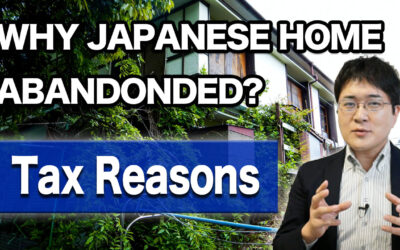Certain types of property are tax-free of Inheritance Tax in Japan. Whether or not the property falls under the tax-free category depends on its contents.
One of the most distinctive features of the estate is a Shrine within a garden, called 庭内神し(Teinai Shinshi) in Japan.
This is an interesting point, so let’s check it out together.
What are technical shins?
A shrine in the home garden is called “Teinai Shinshi” (庭内神し).
Though most Japanese rarely use the concept.
Teinai Shinshi refers to a small shrine, or hokora, set up in a Japanese home or on a property where a deity is enshrined. It is typically used as a place of daily worship for family and community members. A Teinai Shinshi may be dedicated to a specific deity, a Buddha, or an ancestor.
It differs slightly from the butsudan in the home regarding scale and other features. The characteristics are laid out below,
- Scale: small scale, built in a simple facility in the home garden or grounds
- Objects of worship: Fudoson(不動尊), Jizoson(地蔵尊), Dosojin(道祖神), Koshinto(庚申塔), Inari(稲荷), etc.
- Daily Worship: Families and residents visit these shrines daily to pray and make offerings.
This is an aspect of Japanese culture.
There are rules on what constitutes a garden shrine to avoid taxation evasion.
Essential Inheritance Tax Exempt Property
Why is Teinai Shinshi exempt from inheritance tax?
The main reason for this is that a court decision has been issued, but the premise of the dispute is that the law says that the following items are exempt from taxation. The decision was made that it would be strange if they were not eligible compared to these items.
Daily religious utensils
Cemeteries, Buddhist altars, and sacred objects are exempt from taxation. However, they are taxable if they are held as investments or commodities.
Property for charitable purposes
Property used for religious or charitable purposes is exempt from taxation.
Disability grants
Benefits paid by local governments to disabled persons and their dependents are exempt from taxation.
Life insurance benefits
Life insurance benefits up to the number of legal heirs x 5 million yen are exempt from taxation.
Retirement allowance
Retirement and merit allowances up to the number of legal heirs x 5 million yen are exempt from taxation.
Kindergarten property
Kindergarten property that meets certain conditions is exempt from taxation.
Donated property
Property or money donated for public benefit purposes by the deadline for filing inheritance tax returns is exempt from taxation.
In Disputes
Let’s take a look at the dispute.
Summary of Facts
Among the inherited property was a garden shrine in the garden of a house (actually, each shrine hokora enshrining Benzaiten and Inanagari), and the issue was whether this land portion should be exempted from taxation in the calculation of inheritance tax.
The plaintiffs disagreed, arguing that the site constituted nontaxable property in the main and the preliminary, that the site was a shrine that the general public was hesitant to relocate. The plaintiffs sought cancellation of the disposition, claiming that it violated Article 22 of the Inheritance Tax Law because it was challenging to sell the property due to the shrine and that the spirit without a particular valuation reduction broke Article 22 of the Law.
Point of Contention
Whether or not the site of the garden shrine and its annexed facilities fall under the category of nontaxable property based on Article 12, Paragraph 1, Item 2 of the Inheritance Tax Law in Japan.
Judgment
According to the materials and the current situation, the shrines, in this case, fall under Teinai Shinshi.
- According to the materials and the current situation, each of the shrines in the case in question is considered the Teinai Shinshi, and each shrine is attached to the site by a concrete foundation. In addition, there are shrines, torii gates, paths as annex facilities, and gravel pavement, which give the appearance of the grounds of a small shrine.
- Each shrine in question and its annexed facilities (the torii gate had already existed in the generation of the plaintiff’s father) have never been moved from the site since their installation. Given the circumstances of their erection, it should be said that the shrines and their annexed facilities were erected for daily worship rather than to make the site a tax-exempt property.
- In terms of their function, it can be said that daily worship is conducted using the entire space, such as the shrines, annexed facilities, and the premises, as they are directly used for daily worship and rituals (the mere fact that only a Buddhist altar and a Shinto altar are placed and the entire premises or the entire house portion is not directly used for ancestral rituals or daily worship). It is said that the whole site or house differs from a mere Buddhist room not directly used for traditional rites or daily worship).
Based on the above, it can be said that the site in question falls under the category of “something equivalent to these,” as defined in the tax exemption provision in question.
Conclusion
Whether or not the premises of a garden shrine and its annexed facilities are exempt from inheritance tax depends on a comprehensive evaluation of the abovementioned factors. It is impossible to say that they are exempt property in general, and a detailed review in each case is necessary.
This summary is a general guideline, and it is recommended that an expert opinion be sought when applying it to specific cases.
Suppose the premises and annexed facilities are, to a considerable extent, closely and inseparably related to the equipment to the time that they are socially considered to be an integral part of the equipment and subject to daily worship. In that case, the premises and annexed facilities are exempt from inheritance tax as an essential equipment part.
Briefly expressed, this includes the following.
Points to determine whether the property falls under the category of “garden Goddess of Mercy” or not
- Current status of the facility and its establishment on the site
- History and purpose of erection
- The current state of worship
What about Christian or Islamic ones?
We are mainly talking about Buddhism and Shintoism here.
The precedents are also examples of Shintoism.
What about Christianity and Islam?
They would be fully recognized, just not as specific examples.
If it is recognized as equivalent to a shrine, the rest can be used simply by placing the above judgments on it.
There is no distinction between religions as long as the above judgments are firmly followed.
However, you must be able to provide a proper explanation at the time of filing your tax return.
Inheritance tax is often added to the tax amount later on.
When you file your tax return, you should pay attention to the valuation of your property.
If you have any problems, please use the services of our firm.



